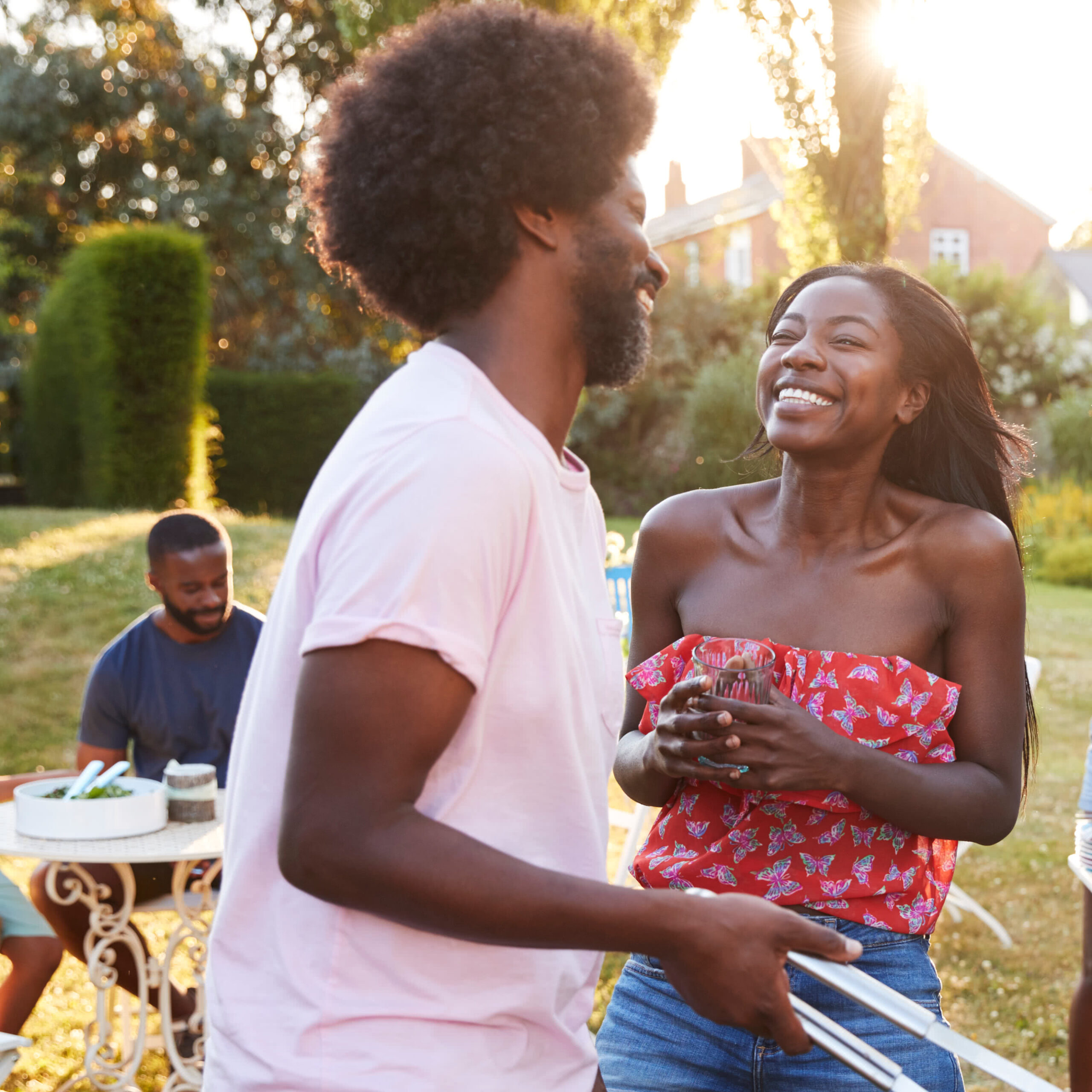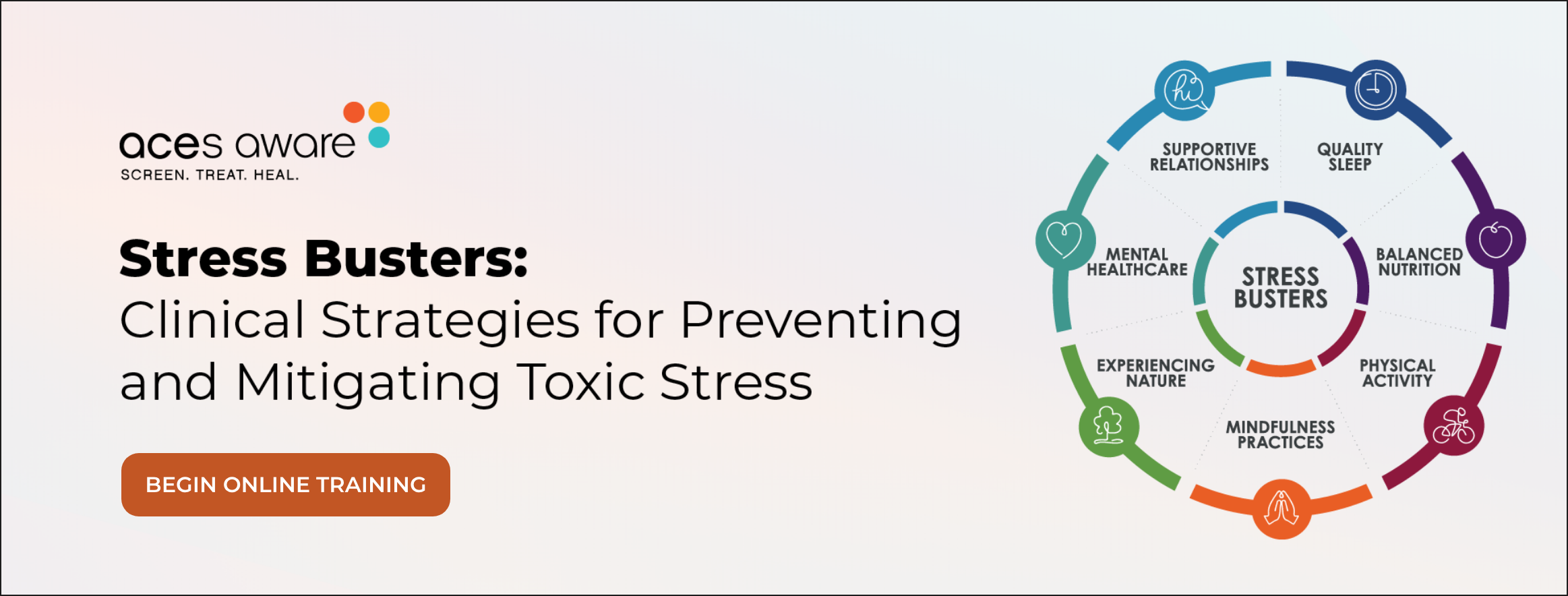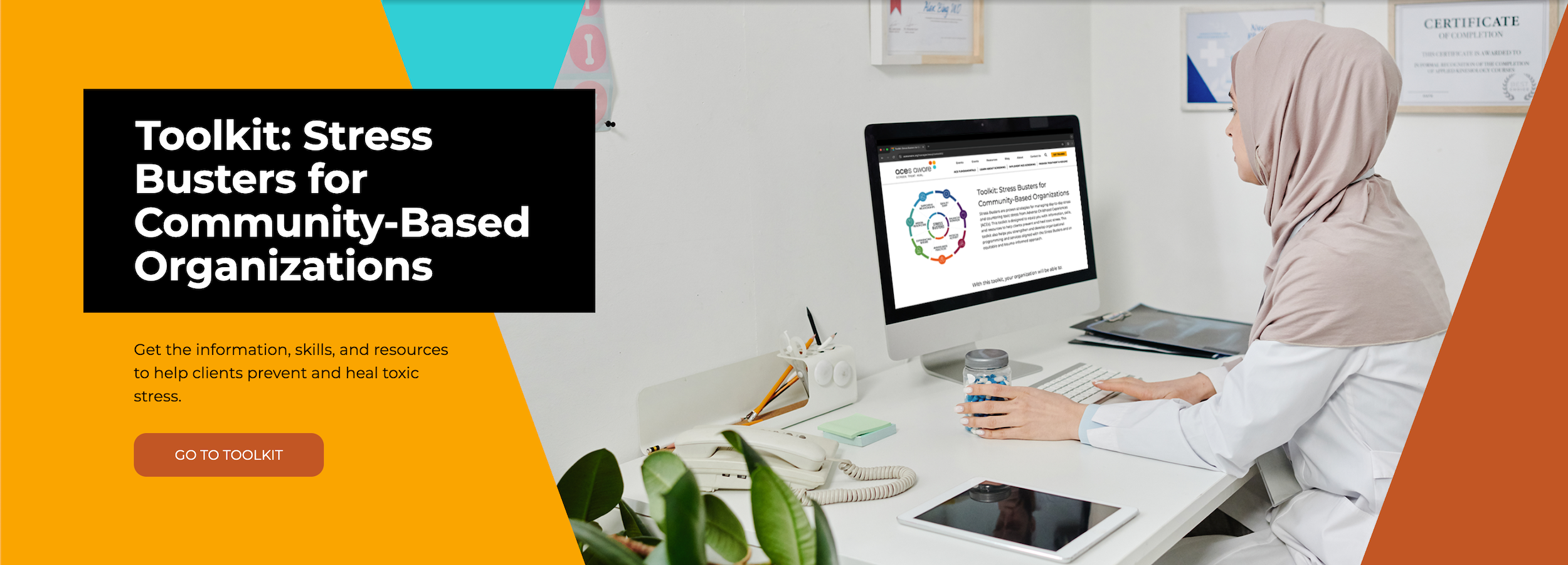Supportive Relationships
We all have stress in our lives, but did you know that supportive relationships can lower our stress and help us live healthier and longer lives?
These relationships can be with family, friends, teachers, coaches, mentors, or anyone who helps us feel better when we depend on or spend time with them.
Being around people who support us can make us healthier by calming our brain and body when stressful things happen in our life. Research shows that having even one supportive relationship can help.

Resources for Professionals
Looking for resources to help patients and clients foster supportive relationships? See Professional Resources within the Stress Busters for Community-Based Organizations toolkit.
Resources for Everyone
Want tips for how to build and grow healthy relationships? The following resources can help.
General
- DID YOU KNOW? Building Connections and Positive Relationships Can Prevent and Manage Stress (ACEs Aware)
- Supportive Relationships Stress Buster video (California Virtual Training Academy Resources)
- Tips for Building Healthy Relationships (Kaiser Permanente, articles and audio)
- Social Connection Matters for Your Health (Julianne Holt-Lunstad, PhD)
- YMCA: Find opportunities to improve health, support young people, make new friends, and contribute to a stronger, more cohesive community for all
Parents and Kids
- Infants and Young Children: 5-Steps for Brain-Building Serve and Return Video (Center on the Developing Child)
- Stress Health: Supportive Relationships (Center for Youth Wellness)
- The Benefit of Supportive Relationships English, Spanish, Portuguese (Center for Youth Wellness)
- Parenting with ACEs English, Spanish, Portuguese (Center for Youth Wellness)
- Family Bonding (Sesame Workshop)
- Big Brothers Big Sisters of America: Mentoring network that makes meaningful, monitored matches between adult volunteers and children ages 5 through young adulthood.
- Boys & Girls Clubs: After-school program that provides a safe place, caring mentors, and life-enhancing programs for kids and teens.
- Family Resource Centers: Free services connecting families and community partners to services and resources supporting children with disabilities.
- Stressful Experiences: How to Help Your Child Heal (Healthychildren.org)
Youth and Young Adults
- Live Beyond Campaign: Find Supportive Relationships (Children and Youth Behavioral Health Initiative)
- Healthy Relationships in Adolescence (US Department of Health & Human Services)
- Teens and Social Media Use: What’s the Impact? (Mayo Clinic Health System)
- In Focus: Building and Maintaining Healthy Relationships: How Do I Know if My Relationships are Healthy? (Stanford University Student Affairs)
- Big Brothers Big Sisters of America: Mentoring network that makes meaningful, monitored matches between adult volunteers and children ages 5 through young adulthood.
- Boys & Girls Clubs: After-school program that provides a safe place, caring mentors, and life-enhancing programs for kids and teens.
As We Age
- Maintaining Healthy Relationships with Age (Mayo Clinic Health System)
Intimate Partner Relationships
- Dating Matters (Centers for Disease Control and Prevention (CDC))
- Fast Facts: Preventing Intimate Partner Violence (CDC)
- Everyone Deserves a Healthy Relationship: Relationship Spectrum (Love is Respect)
- An Introduction to the Gottman Method of Relationship Therapy (The Gottman Institute)
- Love is Respect provides information and resources about dating, healthy relationships, personal safety, and supporting others. Call 1-866-331-9474 or text “LOVEIS” to 22522
Crisis Support
- National Domestic Violence Hotline: Call 1-800-799-SAFE (7233) or text “START” to 88788
- California Parent & Youth Helpline: Free emergency emotional support for parents and youth.
- Call or text 855-427-2736
- caparentyouthhelpline.org
- Find more resources on our Crisis & Safety Resources page (ACEs Aware)
Community Activities
- Find local activities and resources: Call 2-1-1 or go to 211.org
- Find activities at your public library (USA.gov)
- Find volunteering opportunities (VolunteerMatch)

